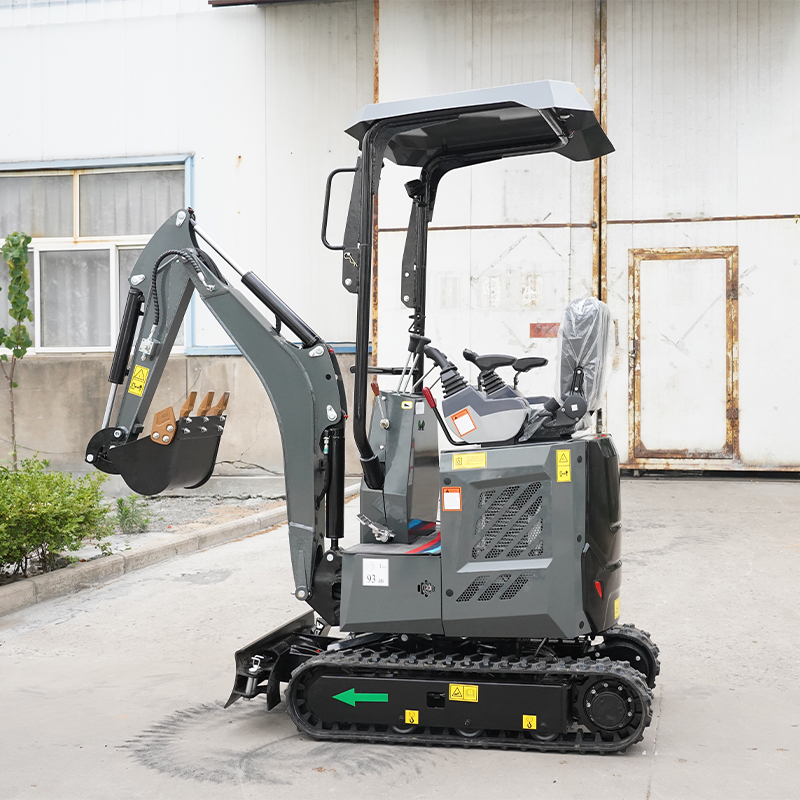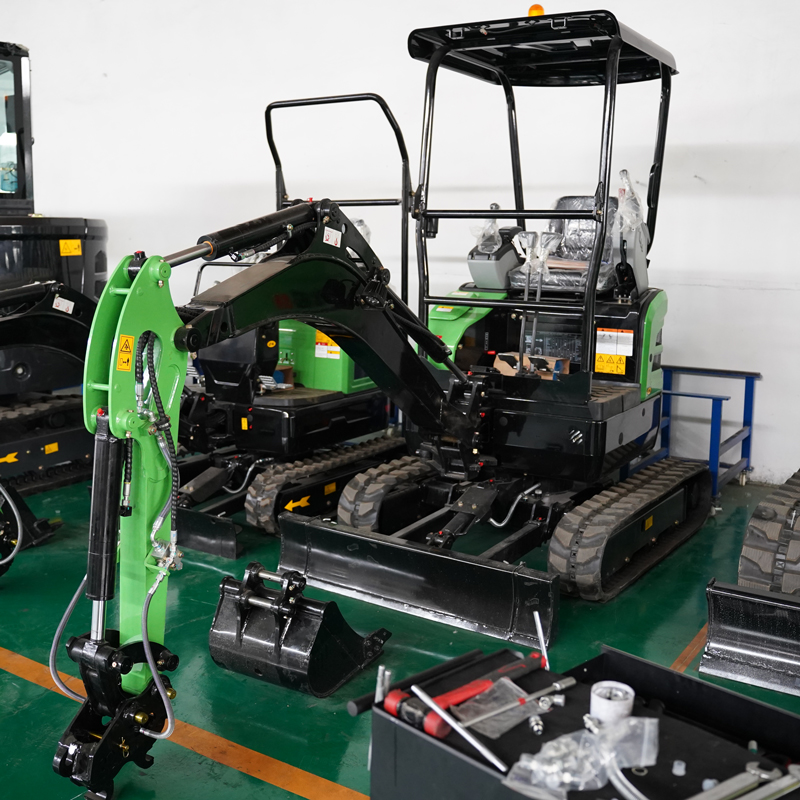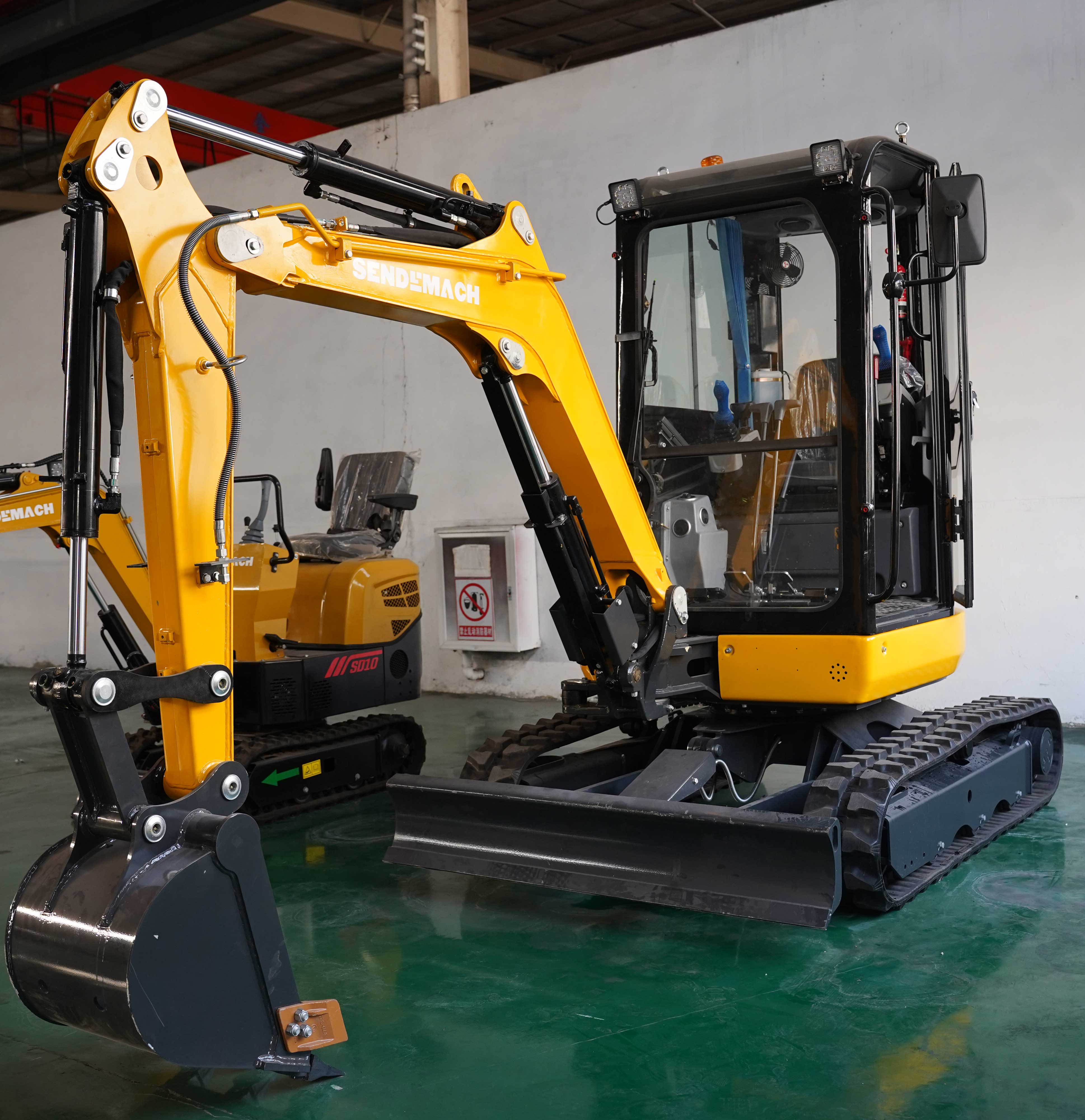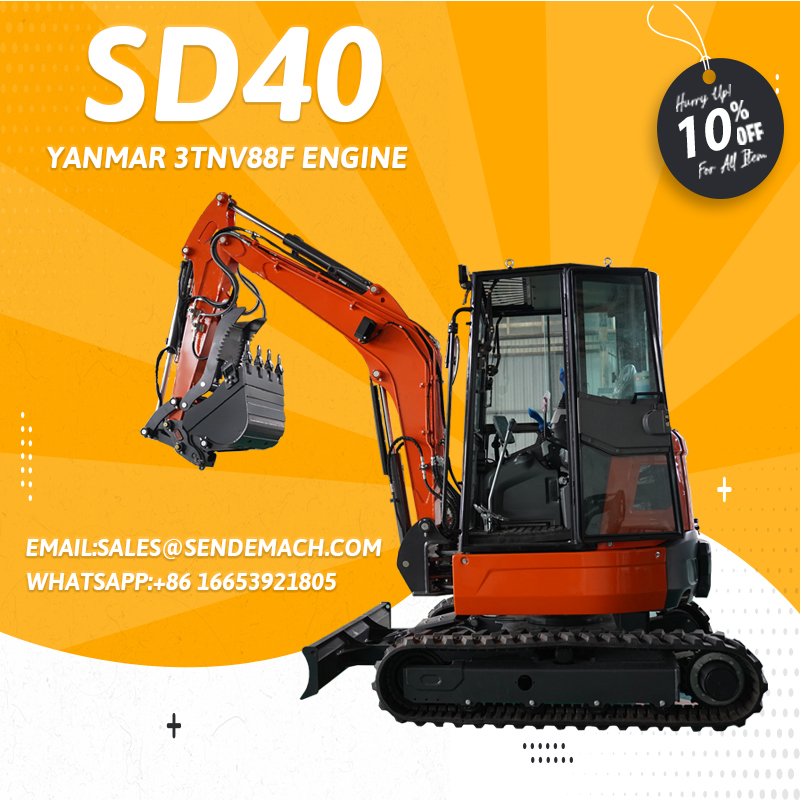Understanding Quality Differences, Key Features, and How to Choose the Right Machine
Chinese mini excavators have become some of the most popular machines on the global market, especially in Europe, North America, Southeast Asia, and the Middle East. Their competitive pricing and fast delivery times make them attractive to contractors, farmers, rental companies, and resellers.
But a common question from buyers is:
Are all Chinese mini excavators the same?
The short answer: No — not at all.
Although many machines may look similar, there are big differences in quality, components, performance, manufacturer capability, and after-sales support.
This article breaks down what really separates Chinese mini excavators and how to choose a reliable one.
China has hundreds of mini excavator factories, ranging from:
Large, professional manufacturers with automated welding, CNC machining, strict quality control, and CE/EPA certification
Medium-size assemblers with mixed-quality suppliers
Small workshops that assemble parts without standardized testing
The factory level directly affects:
Structural strength
Machine lifespan
Component reliability
Delivery time
Quality consistency
Two machines that look identical may perform very differently depending on the factory behind them.
One of the biggest differences is engine quality. Popular engines include:
Yanmar (Japan) – reliable, strong torque, long lifespan
Kubota (Japan) – very stable and fuel-efficient
Briggs & Stratton (USA) – economical
Chinese domestic engines – cheaper but lower performance
Depending on your region, excavators must meet:
EPA Tier 4 (North America)
Euro V (Europe)
Machines with certified engines are more expensive but far more reliable.
Hydraulics determine the machine’s digging power and smoothness.
Components vary across brands:
Rexroth / Eaton / KYB pumps & valves
Chinese standard hydraulic systems
Premium vs. budget cylinders and travel motors
High-end systems provide:
Faster cycle times
Better precision
Longer service life
Budget hydraulics may overheat or leak after a few hundred hours.
Even if two machines have the same size and color, the structural quality is not the same.
Differences include:
Steel thickness
Welding strength
Chassis design
Boom & arm reinforcement
Undercarriage durability
A well-built 1-ton excavator may last 3,000–5,000 hours, while a low-end version may last less than 1,000 hours.
Small parts create big differences:
Wiring harness grade
Sealing quality
Hydraulic hose pressure rating
Joystick & control valve sensitivity
Swing motor brand
Track quality (rubber formula, steel reinforcement)
These parts affect stability, maintenance cost, and safety.
Top factories have:
100% testing for each machine
Engine performance checks
Hydraulic pressure calibration
Structural inspection
Track tension adjustments
Some small workshops skip these steps completely, leading to:
Oil leakage
Weak digging force
Electrical failures
Shorter machine lifespan
Price differences exist because of:
Engine brand
Hydraulic grade
Steel quality
Factory production level
Certification (CE/EPA)
Warranty terms
A high-quality 1-ton mini excavator from a reputable brand will cost significantly more, but saves money over time through:
Fewer repairs
Longer service life
Higher resale value
Here are the best practices:
While Chinese mini excavators offer excellent value, they vary widely in quality.
The best manufacturers produce machines that compete with global brands, while low-cost workshops focus on price over performance.
Choosing the right supplier can mean the difference between:
A reliable machine that lasts years, or
A cheap machine that fails after a few months
If you want stable performance, reliable support, and long-term value, always choose a professional manufacturer with proven experience and high-quality components.
 Are all Chinese mini excavator
Are all Chinese mini excavator
 How much is a 1.7 tonne excava
How much is a 1.7 tonne excava
 How big is a 3.5 ton excavator
How big is a 3.5 ton excavator
 SENDEMACH SD40 – The 3.5-Ton M
SENDEMACH SD40 – The 3.5-Ton M